Posts by chicagoland
World Relief Affirms New Biden Administration Proposal Expanding Legal Pathways for Those Fleeing Hardship, Decries New Asylum Restrictions
January 5, 2022
CONTACT:
Pinkston Team
wr@pinkston.co
BALTIMORE — Today, President Biden announced a series of new immigration policies seeking to address the challenges at the U.S.-Mexico border. The Biden administration plans to significantly expand parole programs for individuals from Cuba, Haiti, Nicaragua and Venezuela — allowing individuals with U.S.-based sponsors to lawfully enter the U.S. and be authorized to work upon arrival — while creating new restrictions for individuals from these and other countries who arrive at the U.S.-Mexico border and wish to seek asylum. To do so, the Biden administration is relying upon the legal authority of Title 42, a public health law whose use the administration has previously said is no longer justified, but which the U.S. Supreme Court has kept in effect with a temporary hold issued last month. Under the Title 42 policy, individuals are expelled to Mexico without the ability to seek asylum under the terms of longstanding U.S. immigration law. The administration also announced expansion of refugee resettlement from the Western Hemisphere and additional new proposed restrictions on asylum eligibility.
World Relief welcomes the expansion of lawful mechanisms for entry for individuals from these countries and is eager to partner with local churches to facilitate their integration, but opposes new proposals that would deny due process to those seeking refuge in the United States along the border.
“We strongly denounce any policies imposed by any administration that prohibit, deter, or limit individuals from seeking refuge in the U.S. as allowed by U.S. law,” said Myal Greene, president and CEO of World Relief. “Those fleeing their countries due to conflict, violence or fear not only have the right to seek safety and protection but to plead their case to determine if they qualify to stay in our country lawfully.”
World Relief has persistently advocated for the reversal of the previous administration’s harmful, illegal, and ineffective anti-asylum policies and now calls on President Biden to fulfill his promise to “secure our border, while ensuring the dignity of migrants and upholding their legal right to seek asylum.”
“We certainly acknowledge that not every individual who arrives at the border will qualify to be granted asylum under U.S. law, but we must respect our nation’s moral and legal obligations to ensure due process for those seeking protection from persecution,” said Jenny Yang, vice president for advocacy and policy at World Relief. “We are encouraged by the expansion of legal avenues for those who have fled countries where people are enduring incredible hardship. However, such processes should not be paired with new restrictions on asylum for those with no other avenue for protection under current U.S. law but for reaching the U.S. border to seek asylum. We urge President Biden to work with Congress to develop a pathway forward that both protects our nation’s borders and respects the dignity and value of all human life, especially those who are vulnerable.”
To learn more about World Relief Chicagoland, visit worldrelief.org/chicagoland.
To download a PDF version of this press release, click here.
What does a year hold?
When I consider the new year, I’m struck by how little we know about what it will hold. In 2019, we had no idea that the pandemic would shut down the world in 2020. Before 2020, we had no idea that Afghanistan would fall in 2021. In 2021, we had no idea that Ukraine would be invaded in 2022. As we face 2023, we have no idea what might lie ahead.
Beyond these more public events, it is an unfortunate truth that the world is riddled with conflict, poverty, corruption, and environmental realities that have been driving people from their homes for generations. The People of Myanmar, Venezuela, Darfur, Iran, Eritrea, and other places are forced daily to display a resilience many of us will never know.
So, what do we do with these realities?
What do we do with the certainty we can’t know the future and the heart-breaking crisis of mass displacement? It can be overwhelming and we can find ourselves focusing on what we do not know. In these moments I ask myself, “Who am I becoming?” “How will I lean into trusting God this year?” “How can I be a person of faith in the year ahead?”. Questions more easily asked than answered.
But in my life, I have found that amid uncertain futures, it is vital that we hold to our core values. It is vital that we lean into learning to trust God and others. When tethered to truth, we can navigate the uncertainties ahead with grace, confidence, and hope. When bound to one another, we can endure challenges, create lasting solutions, and make the world a better place.
Values We Hold
All people have sacred worth.
For those of us who follow Jesus, we believe that every person is created in the image of God and worthy of welcome. There are no qualifiers here. As a popular quote from an unknown author says “You will never look in the eyes of a person that God does not love.” This means that every person who comes to the US is someone God loves. Every immigrant, refugee, or asylum seeker has unspeakable value and potential. To not extend welcome is to dishonor the image of God in them.
We are made for connection.
John Donne’s poem “No man (or woman) is an island” captures this reality beautifully. We are not made for isolation. Each of us is a part of something bigger. Each of us has a part to play in this world. We are designed to be together. This means at least two things. First, the work of welcoming immigrants is something we do together, relying on each other’s strengths and resilience. And second, building relationships with those around us, immigrants and native-born alike, is sacred work. When we build relationships with one another that are meaningful and mutually transformative, we are participating in a broader multigenerational journey toward a more just world.
We are more powerful together.
My first encounter with the work of World Relief was as a volunteer. I remember a wide range of emotions when I started. Hopeful, eager, anxious, overwhelmed, grateful . . . the list could go on. But one thing that jumps out to me from that time is how much of an impact the whole community of World Relief was having. Sure, I was giving a few hours a week. But alongside others, we were giving so much more. Over my years serving and leading here, I have seen the power of a community to make lasting change. One example of this is a recent study showing how more evangelical Christians are now looking to scripture for their views on immigration, an area of concerted advocacy work for World Relief. We can create something far more beautiful than we can on our own, together.
We All Have a Part to Play
When we hold space for these values to form us, I believe we will find ourselves ready for the year ahead. In the midst of economic uncertainty and a longer-then-we-would-like pandemic recovery, we remain ready to welcome.
In 2023, I anticipate discovering new challenges and witnessing new successes. I embrace the reality that I can’t know the future. I hold to the truth that no matter what comes, we are not alone. We have hope, and we will continue to serve as we have over the past 43 years. I am grateful beyond words for you and the whole World Relief community. And I know that together, we will continue to embody welcome, provide vital services for immigrants, and create a community we can all be grateful for.
Find Your Part to Play
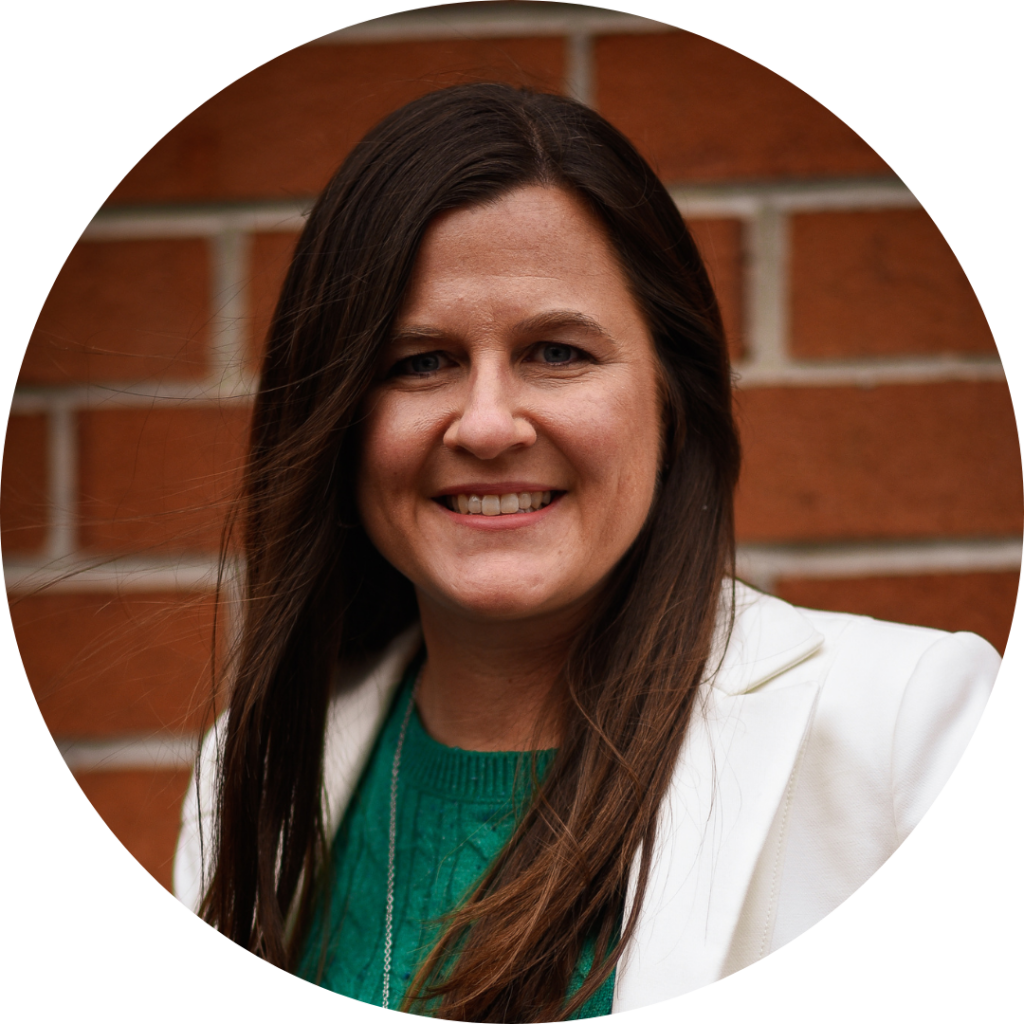
Susan Sperry is the Executive Director of World Relief Chicagoland, a faith-based organization committed to empowering the church and community to serve immigrants in vulnerable situations. She leads World Relief’s three locations in Chicago, DuPage County, and Aurora to provide vital services, bring people together, and build welcoming communities. Susan has served at World Relief since 2001, facilitating the resettlement of thousands of refugees and mobilizing hundreds of volunteers and churches to serve their neighbors. She has her MS in Learning and Organizational Change from Northwestern University, and her undergraduate degree from Wheaton College. She loves working alongside teams to navigate the human side of change and aspires to be a life-long learner.
Worth the Wait: Newlywed Refugees Love Remains
For seven years, Congolese refugees (and newlyweds!), Mbimbi and Goreth, didn’t know if they would ever see each other again. Separated by continents, Mbimbi was stuck in Burundi while Goreth resettled and began her new life in America. In spite of the long wait, the two of them never lost hope, their love growing by the day.
“No one can do what Goreth did,” Mbimbi said about his wife’s commitment not to remarry. Instead, Goreth chose to hold onto hope, believing God was faithful and would bring Mbimbi back to her in America.
Where It All Began
In 2008, Goreth was a wife and mother living in Goma, a city in Democratic Republic of Congo (DRC). Her day began like any other day – she woke up, brushed her teeth, made some tea and headed to the market to sell clothes at her stand. It became a day she would never forget when “the fighting broke out.” She recalls, “My daughters, [Christine and Valentine], and I started running, and we found a way to get past Goma to Burundi. That’s when I started my life as a refugee. My [first] husband died in the fights.”
Goreth and her daughters ended up in a Burundian town filled with other refugees. Upon arrival she shares, “I felt relief because of sleeping in a house and churches help us and Christians help us.”
While Goreth and her daughters were refugees in Burundi, Mbimbi was working as an auto mechanic in Baraka, a city south of Goma in DRC.
Pressure
In 2014, an armed civilian group put pressure on him to “join them for the fight and to be a soldier.” These groups were once formed to defend the Congolese against rebel armies. But tragically, they have created more chaos and violence than protection for the Congolese people.
So, when Mbimbi refused, they threatened him. With a target on his back, he reflects, “That was the night my uncle called me and said, ‘They are looking for you.’” That same day, “I told fishermen what happened and ask if they can help me to another place. They hide me in the boat and carry me down river.”
From there, Mbimbi went to Boku, where “they [gave him a] motorcycle to go to Boda.” From Boda, he traveled to Burundi where he ended up in the same town as Goreth.
Having arrived in the same town six years apart, Goreth and Mbimbi met, by chance, while filling out paperwork to earn refugee status. Goreth was farther along in the process while Mbimbi was just beginning his paperwork. Despite crossing paths at different stages in their journey to flee DR Congo, they formed a connection “and began a relationship.” Within a year, they were married.
Oceans Apart
Even though they were living in a safer town than the cities they had fled, Goreth and Mbimbi couldn’t escape the violence. In 2015, their Burundian town experienced fighting; so, when Goreth was given the opportunity to go to America, she agreed. The catch? Mbimbi wouldn’t be able to join her and her daughters. It was a bag of mixed feelings for Goreth.
“To be a refugee is not an easy thing,” she says. “It’s just a thing you have to do to pray to God. God helped me because I became strong and fight for the kids to grow up…in a safer place.”
Leaving behind her new husband, Goreth and her daughters traveled to America not knowing when and if they would ever be reunited with Mbimbi. When they arrived in the U.S., their new lives began right away.
Goreth remembers they were greeted by World Relief staff and volunteers. “[They] had already found an apartment for us,” she recalls.
Staff and volunteers came alongside Goreth and her kids, taking them to doctors appointments and helping Goreth find a job in manufacturing, packing hospital-grade linens. Goreth expresses sincere gratitude for all of World Relief’s help, especially in “the first three to six months.”
Even though Goreth felt “sad sometimes” she shared with deep conviction that she “still waited and prayed to God” for Mbimbi.
At Last, Together Again
Finally, in July 2022 both her and Mbimbi’s prayers were answered when he was resettled to America. Many were there to witness the tearful reunion at Chicago-O’Hare as Goreth and Mbimbi finally embraced each other after their 7 year separation.
Now reunited with his wife, Mbimbi is taking a World Relief “Zoom job class and language class.” He takes comfort in knowing that once his job and language classes are complete, he can still count on World Relief.
“It’s not like they abandon you,” he said. “If you still need something, they are there to help.”
Mbimbi and Goreth are currently renting a one-bedroom apartment. Now able to dream together, the couple says, “for the future, we are praying to God that we can get our own house.”
Knowing that God has provided for them before, they are trusting, through prayer and perseverance, that anything is possible!
Converging Crisis
As crises converge, and global conflict forces more people to flee their homes, it takes all of us, to move forward together, to build peace and lasting change. When you give today, you help us build peace in places like DR Congo while also welcoming those like Goreth and Mbimbi who have been forced to flee to the United States.
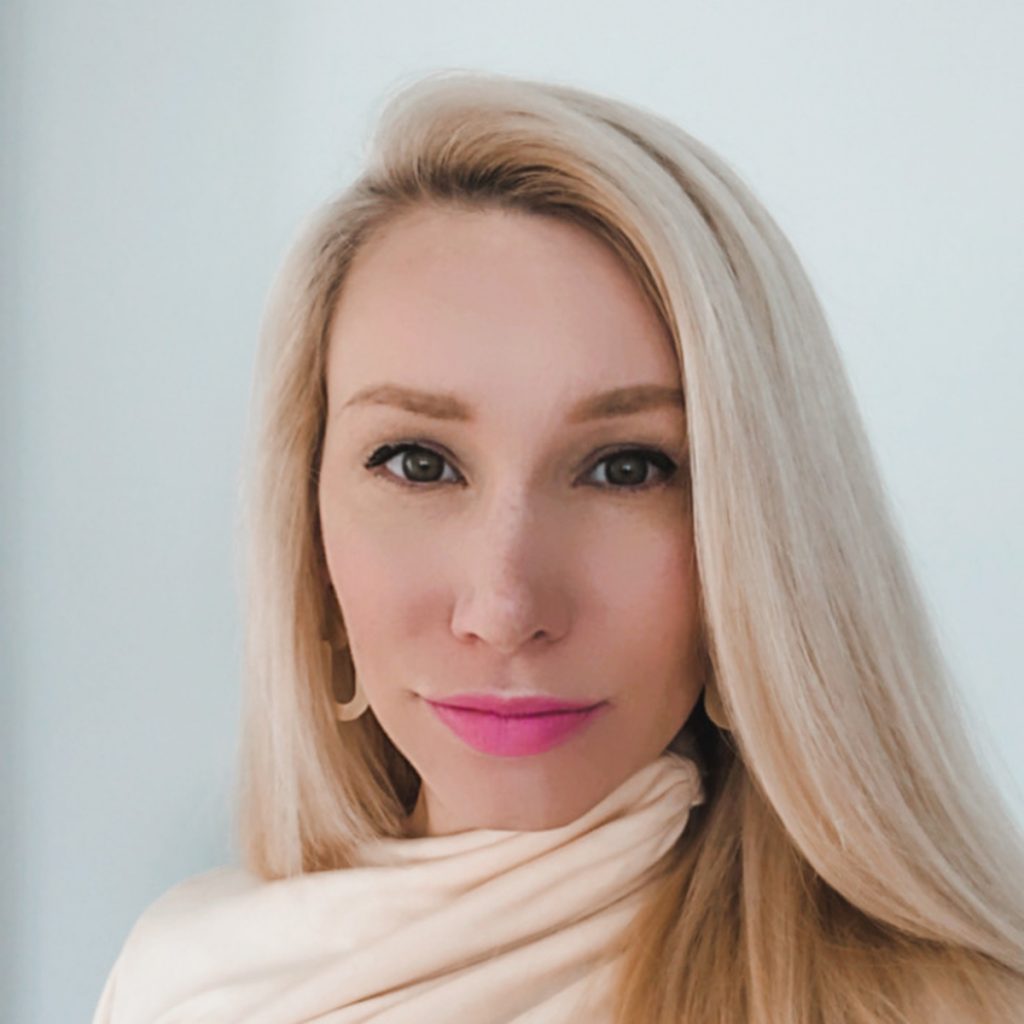
Michelle Visk is a freelance writer passionate about sharing compelling stories of individuals impacted by nonprofits throughout the world. In addition to writing for nonprofits, she recently launched her own interior design e-consulting business, geared at making interior design more accessible to the middle class so everyone can create a home they love. When she’s not writing or doing e-consults, she enjoys spending the majority of her time with her husband and pouring into her two feisty little girls (ages 3.5 and 5) as a stay-at-home-mom. Before becoming a stay-at-home mom, Michelle worked in ministry for 10 years, serving as a Communications Director for a multi-site church. She holds a BS from Butler University.
I Was No Longer Safe in My Country: Yomardy’s Story of Seeking Asylum
“I am from Venezuela. One of the most wonderful countries in South America.”
To an outsider, it would appear Yomardy lived an ideal life in her home country of Venezuela. Certainly not a situation to cause one to seek asylum.
After all, the terrain was beautiful and diverse with incredible views. Most of her people were kind, honest, outgoing and humble. And her professional life as an educator was nothing but impressive.
Yomardy had been honored as Venezuela’s National Teacher of the Year and accepted into the prestigious Fulbright U.S. Scholar Program. She planned to bring back extensive training and valuable knowledge from the U.S. to improve the lives of the students she served. In fact, her ultimate goal was to become Venezuela’s Vice Minister of Education.
With everything in her favor, you might wonder what could have caused Yomardy to leave a country she so deeply loved. What brought about her decision to eventually seek asylum?
An Enemy of the State
Chronic food and medicine shortages. High unemployment. A corrupt and oppressive government. And unchecked violence that gives Venezuela the highest crime rate of any country in the world. This humanitarian crisis has forced over 7 million Venezuelans to flee their country, making it one of the highest external displacement crisis globally.
Yet Yomardy hoped her time in the U.S. would equip her to better the lives of her people. Instead, it resulted in one of her worst nightmares.
While she spoke honestly and humbly about the challenges her students faced back in Venezuela, her government struck harshly back at her. It wasn’t pleased that Yomardy portrayed her leaders in an unfavorable light. Particularly while she was in a country they considered an enemy.
Ultimately, speaking the truth would have serious consequences.
A Difficult Decision
The ruthless action of her government devastated Yomardy. Her entire life – her job, her family, everything she struggled for – was back in Venezuela. It felt like she died when all that mattered was abruptly taken from her.
After her three month visit ended, Yomardy was determined to return home with her plan to help her country. However, she knew the risks. Would it really be that dangerous if she made a decision to go back?
A New Dream
With no job, no home and no relationships in the U.S., Yomardy’s fears for her future were understandable. But with the help of generous and supportive people, along with the guidance of World Relief, Yomardy rebuilt a new life.
Refusing to sit idle in her circumstances, she quickly earned her license to teach in the U.S. and now brings her passion to American students at an elementary school. She pushed on to pursue a master’s degree and aspires to become a lawyer one day.
But Yomardy hasn’t given up on her dream to become Venezuela’s Vice Minister of Education. While she optimistically waits for an opportunity to return to her country, she has created a few new dreams. Particularly one that gives back to others what was generously given to her during the most challenging time of her life.
Listen to the Full Story
Listen to Yomardy share her complete story of risk, fear, and perseverance to leave a life and country behind to seek asylum in the United States.
Serving Asylum Seekers and Asylees
World Relief Chicagoland believes that everyone deserves a chance to seek safety and a better life. Like refugees, asylum seekers like Yomardy flee their homes because of threats to their safety and well-being. But unlike for refugees, the federal government does not have financial provision for them. They must wait for a legal decision on their asylum claim. Yet they have no way to provide for themselves or their families. And this puts asylum seekers in an even more vulnerable situation.
Since 2019, World Relief Chicagoland has served asylum seekers at their most vulnerable. With your help, the H.O.M.E. program provides Housing, Opportunity, Mutuality (Transformative relationships), and Empowerment for asylum seekers in our community. Will you partner with us to serve asylum seekers today? Gather a group from your church or community to serve as a Good Neighbor Team with the H.O.M.E. program in Chicago today. This is one way you can have a life-changing impact on someone else seeking safety.
Watch other stories of transformation on World Relief Chicagoland’s YouTube channel!
More like this:
New Opportunity in the U.S.: Jenny’s Story
News from H.O.M.E.: Serving Asylum Seekers
Early in 2022, we featured a post by Hannah Thompson, World Relief Chicagoland’s Immigrant Family Services Volunteer Coordinator who works with the staff and community volunteers who serve asylum seekers through the H.O.M.E. Program. Now, Hannah is back, sharing what has changed since January.
First, what is the H.O.M.E. Program?
World Relief Chicagoland created the H.O.M.E. Program because we know that asylum seekers are among the most vulnerable immigrants. Though many have similar experiences as refugees and may have also fled their homes seeking safety, life in the U.S. looks very different. Asylum seekers do not have the same financial support as refugees. Instead, they must wait for their asylum case to be heard and for the U.S. to make a legal decision about whether they can become asylees. This can be a long process that takes months or years. And during that time, asylum seekers are socially, financially, and legally vulnerable.
Over the years, World Relief has seen countless asylum seekers become vital, contributing members of the community after being granted asylum and staying in the U.S. permanently as “asylees.” Yet while they wait, too many experience poverty, homelessness, or deep debt.
The H.O.M.E. Program is the chance to form a supportive community safety net for asylum seekers during this temporary stage of their immigration journey. H.O.M.E. provides Housing, Opportunity, Mutuality (Transformative relationships), and Empowerment for asylum seekers. With the support of volunteers who help provide short-term rental assistance and relational support, asylum-seeking families gain the chance to rebuild their lives – instead of remaining in limbo while they wait for their asylum case to be heard.
An October Update from the H.O.ME. Front
News from the H.O.M.E. Front
It is hard to believe that we are coming up on the two-year anniversary of launching the H.O.M.E. Program! Right now, I am looking back in amazement at all that has happened and how many special moments have emerged just in the last year!
As of October 2022:
- We have served 13 asylum-seeking families through the H.O.M.E. Program!
- 12 local churches have donated financially to cover rent costs, led the way in volunteering as teams to support families, or both!
There is one particularly beautiful relationship I’ve seen blossom. One of our church volunteer teams recently matched with a family living in their neighborhood. When the family and the team first met, the family was expecting their first child: a baby girl! To help the family prepare and celebrate, the team came together. They collected donations. And they even hosted a baby shower for the family!
As the baby’s birth date drew closer, the volunteers drove the family to and from the hospital. They were some of the first people to meet the new, healthy baby girl!
Being a new parent is a big learning curve. It’s an even bigger challenge for those already navigating a new country! Thankfully, the team, loaded with their own personal parenting experience, has been a ready source of support for navigating life with a newborn and for the new mom as she manages post-partum recovery. Without the H.O.M.E. Program and World Relief Chicagoland’s church partners, the family would not have had friends to support them in this new chapter or a home to bring their daughter to. We are so grateful to see this relationship flourish!
You Can Join in Welcoming Families H.O.M.E.
Volunteer teams and financial supporters like you ensure that asylum-seeking families reach important milestones like the birth of a baby, celebrating a new job, and more! With our H.O.M.E. partners, asylum seekers can move forward in life without worrying about how to pay rent or being at risk of homelessness.
World Relief Chicagoland needs more partners to walk alongside asylum seekers. Whether by volunteering, giving rent assistance, or both, you can make the difference and help welcome families “home.”
Learn More
Learn more about the H.O.M.E. Program and how you can get involved here!
Together, we can support asylum seekers as they seek safety.
How to Have Impact as a Volunteer Tutor
The volunteer tutors at World Relief have a superpower: they know how to bring out the unique gifts of each student to help them grow. Here’s how one tutor used a child’s passion to overcome his fears so he could flourish.
Aaron* is a 6-year-old boy who arrived with his family several years ago from an oppressive African country called Eritrea. For the past year, Aaron has been part of the Children & Youth program. He received tutoring support, participated in the summer program, and engaged in the spring student leadership team – a model set up to encourage active student participation in planning the summer program.
When Taylor*, Aaron’s volunteer tutor, first met him in 2021, she found it difficult to get him to say a word. In fact, no one could get him to talk. He was extremely shy. He kept his camera off during Zoom meetings. He took a long time to answer questions. He even struggled to share his own name.
But that was about to change when Taylor discovered this young boy’s passion. Aaron loved to draw.
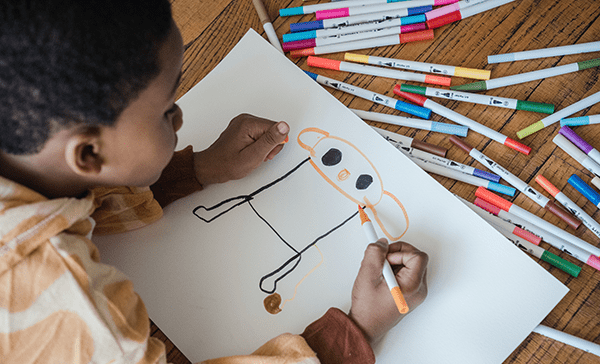
Turning Passion Into Learning
Taylor took Aaron’s love for drawing and turned it into an impactful teaching tool. Tutoring time became drawing time. As Aaron formed an object on his sheet of paper, Taylor taught him the English name for that object. She then followed up with how to spell it. With this learning process, Aaron grew stronger in his English skills.
Before long, he also grew in his confidence. Aaron began to turn his camera on for Zoom calls. He shared his opinion in group discussions with other students on the leadership team. And he grew excited about what the 2022 summer program would look like.
In fact, he didn’t miss a single day.
Turning Fear Into Friendship
Aaron was initially apprehensive about meeting new people when the summer program began. He didn’t want to leave the safety net of his cousins who were with him. But as time progressed, so did his willingness to make new friends.
Before long he was running around, playing with other boys his age, and chatting with new friends. Rides in the van to and from the program turned into times to play and share toys with the kids that rode alongside him – and to heroically rescue a new friend’s toy that fell beneath the seats.
As he grew to enjoy his interaction with the program leaders and volunteers, his friendship with them blossomed as well. After one intern had her last day at the summer program, Aaron asked his aunt to call her. He already missed her and wanted to talk with his new friend.
Your Impact as a Volunteer Tutor
Each year children just like Aaron grow in confidence and self-esteem because of the one-on-one connections they make with their volunteer tutors. Immigrant and refugee youth who otherwise may have stayed isolated and alone are supported in trying new activities, expanding their language skill, and forming new relationships. All because volunteers choose to invest in the future of these young people.
You can make a lasting difference in the life of a refugee child. Start today.
*Names changed.
Read more about the impact happening among children and youth!
Summer Camp: Fun, Fellowship and First Responders – World Relief
How Refugee Children Reshape Resettlement for Their Families – World Relief
The Refugee Journey to Home in a New Community (worldrelief.org)
Summer Camp: Fun, Fellowship and First Responders
Summer camp brings back a lot of fun memories with carefree (and homework-free), sun-filled days. Kids get “screen-free” time to play outside, make new friends, bond with counselors, and learn games and songs. It’s an opportunity every child should have – no matter where they come from or the circumstances that brought them to the Chicagoland area.
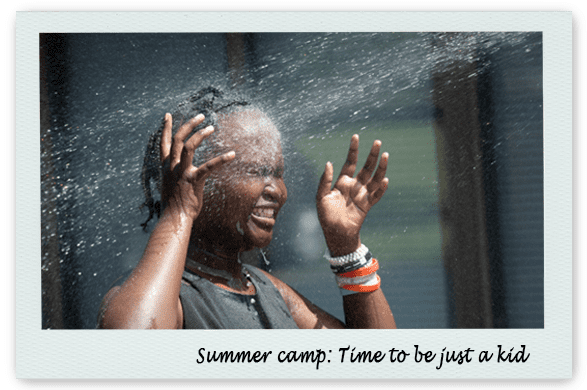
The Excitement Begins . . . Again.
After a two-year hiatus, Children & Youth Services in DuPage and Aurora were back at it. They offered in-person day camps to provide children with summer fun. Three camps for school-age youth were held last July, hosted by three World Relief partner churches. A total of 60 kids participated, assisted by 65 World Relief volunteers and staff.
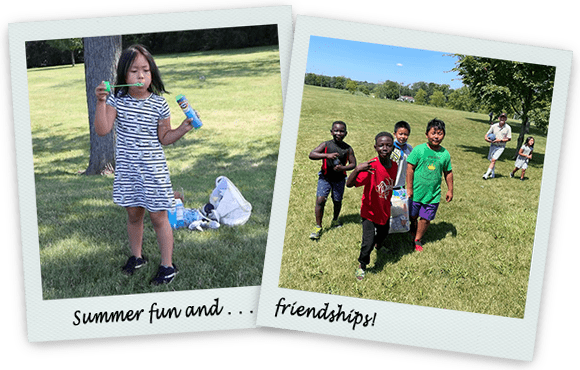
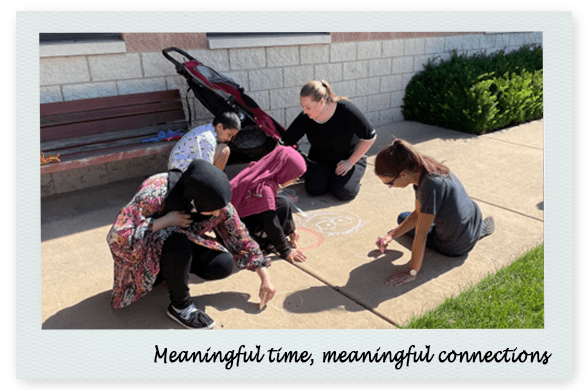
For many campers, it was the first time they got to participate in camp or any kind of summer program. The days filled up with hula hoops, jump ropes, bubbles, sidewalk chalk, soccer and sports in nearby parks. While some caught up with their classmates, others reconnected with ones they knew from World Relief’s After School Club and tutoring programs.
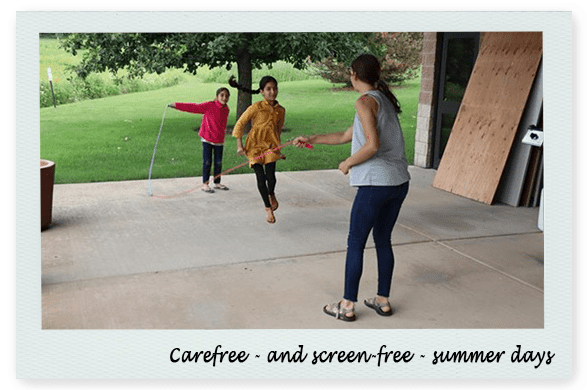
Brushing Up on English
Along with fun and fellowship, World Relief summer camps offered a chance for youth to practice their English. Since most participating families are recent arrivals to the U.S., English is their second language and not spoken at home. This can lead to it getting lost or rusty over a long break from school. The perfect remedy to prevent that? A few hours each day at camp where they can speak English together.
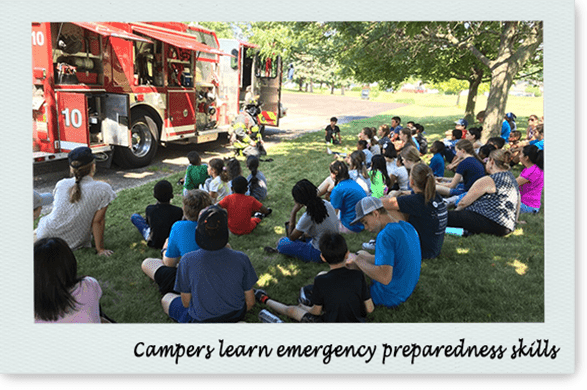
Learning Safety From the Pros
Other learning opportunities focused on safety and preparedness. In Aurora, eight Fire and Police Department first responders demonstrated real-world emergency preparedness skills. They stopped by in their specialized vehicles to interact with the kids and teach them about community safety. They gave tips for what to do at home if there’s an emergency and how to call 911.
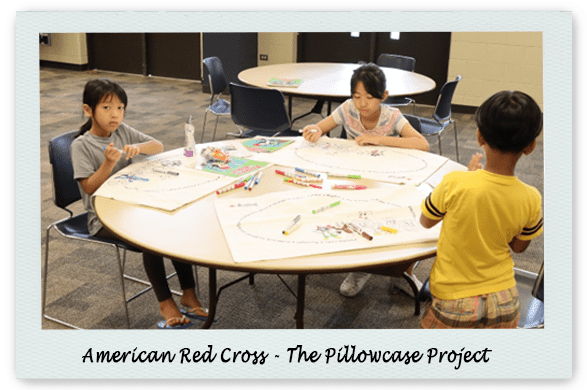
Spending Time With American Red Cross
At all three camps, American Red Cross volunteers taught tornado preparedness and home fire safety through storytelling and games. Campers practiced fire drills outside and learned how to keep their families safe inside if they hear tornado sirens.
The Red Cross’s Pillowcase Project was a creative way to prepare safety items at home in case of an emergency. Everyone colored their own Red Cross pillowcases, which also serve as an emergency kit.
Connecting With Counselors
World Relief volunteers and Children & Youth Services staff were on hand each day to supervise and engage with the campers. But more importantly, they showed how much they want these children to succeed as they resettle into a new way of life.
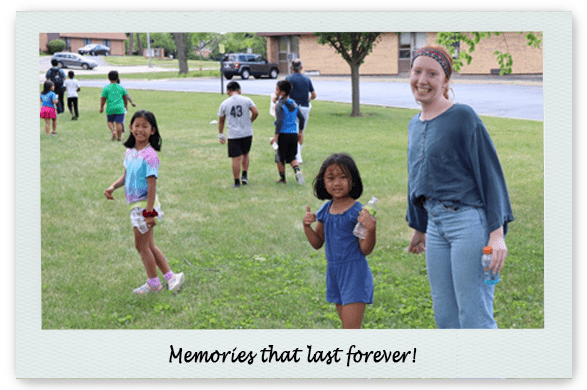
How do you measure summer camp fun? There may not be an adequate way to capture it, except by the smiles that were everywhere. Or in the words of one young camper, “This is the best camp ever!”
Make an Impact
World Relief Chicagoland has ongoing volunteer opportunities that you don’t have to wait for summer to start. Start making an impact today – and memories!
How Refugee Children Reshape Resettlement for Their Families
It’s easy to overlook the unique role refugee children have in the resettlement process. Yet the part they play not only impacts how quickly their family can adapt to life in the U.S. It can also determine how successfully they fully integrate.
The Challenge of Successful Resettlement
For families across the world, many would agree one of our highest priorities is raising our children. This often takes the form of providing stability – whether it’s through safety, good healthcare, a solid education, or better opportunities. After all, children take precedence in our lives and for good reason: they impact us at every level. When they struggle, the family as a unit often struggles, experiencing great difficulty to move forward.
It’s in this challenge many refugee families find themselves up against as they rebuild their lives in the U.S.
The Daunting Journey
Every year, violence, wars, persecution, poverty, famine, and other natural disasters drive children from their homes. According to the UNHCR, 36.5 million children were forcibly displaced in 2021 – that’s more than 40% of the world’s total displaced people. Not only has their normal rhythm of life been torn apart by unforeseen and tragic events. They’re never given the time or resources to mentally and emotionally process what happened – or why it happened in the first place.
Unfortunately, these challenges don’t stop here in the U.S. as they take on a new form during the resettlement process. Although eager to start their new life, refugee children now face a new set of barriers. But this time it’s in the form of adapting to a different culture, learning a new language, and navigating an unfamiliar educational system. To top it off, they must also figure out how to cultivate new relationships.
These challenges continue into the home as children straddle two different worlds and often assume adult responsibilities. As quick learners, children commonly become the primary interpreter for their parents – whether at school, for medical care, or in situations where family members are unable to communicate. They often find themselves trying to integrate two diverse cultures and languages into their household fabric. Their role develops into bridging the gaps and helping the family to function more smoothly.
Finding an Inroad to Stability
Without question, in the event of crisis, war, or conflict, the stability of the family unit is key to building a new foundation. For families, this stability begins with the children. When they’re in a safe space, parents and extended family feel more secure about starting the adjustment process.
Yet the question remains. How can these families rebuild a sense of security when their children continue to be exposed to daunting challenges?
Bridging the Gap
Children & Youth Services at World Relief plays an integral part in stabilizing and empowering refugee children and their families as they resettle in the Chicago suburbs. In the last year, people like you along with the staff in DuPage and Aurora have worked with 633 children from 268 families and 37 different countries. These countries include Ukraine, Afghanistan, Democratic Republic of Congo, Syria, Sudan, Nepal, Colombia and many more.
We are all too familiar with the global crises that have uprooted these families. It’s critical to orient them as soon as possible to the nuts and bolts of parenting in America so that they can not only provide needed stability for their children. They can also move forward as a family.
Children and Youth Services Programs
Upon their arrival to the U.S., staff members work one-on-one with each unique family. A parent orientation program provides the initial support to quickly adjust during resettlement. It introduces them to life in the United States and what families can expect at each age and stage of their child’s resettlement.
Resources provided by Children & Youth Services continue to serve as an essential anchor for these families. These services include:
- Early childhood case management: nurtures essential play groups, connects families to local preschools, and coordinates specialized therapy
- School preparation and support: Provides backpacks and school supplies, helps them navigate classes and form new friendships, and shows them how to ride the bus on their first day
- Tutoring and mentoring services: ensures homework help is available through tutoring and provides After School and Summer Clubs for students in all grades
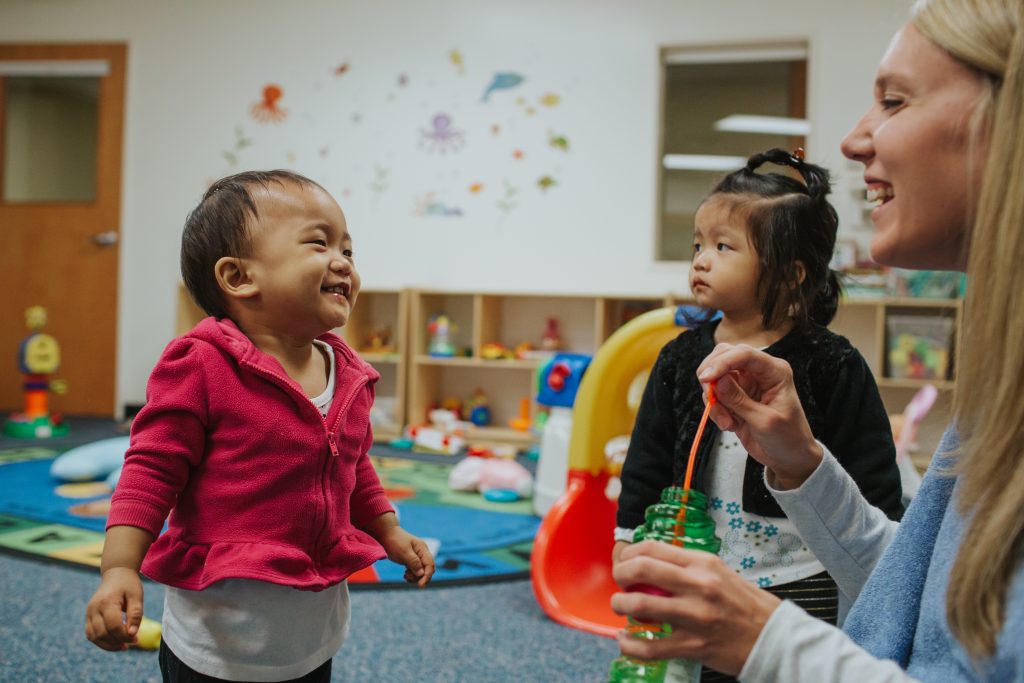
And let’s not forget one of the most important parts of being a kid: having fun and making new friends. World Relief’s youth programming gives refugee children the space to be a kid with other kids. They create new friendships, explore American culture, and share a universal love for games (and snacks). Most importantly, these children are given the chance to move forward – together. Their constant smiles reveal it all – they tell a joyful story of a new life beginning.
Make a Difference. Get Involved.
People like you, along with churches, staff, donors and volunteers walk this journey with refugee children and their families. Together, we advocate on their behalf and connect them to essential community resources such as food pantries, clothing, child car seats, and other social services.
We understand that familiarity with the everyday small things has a huge impact on newcomers. Together, we can tackle complex challenges like employment, learning English, becoming citizens, and restoring dignity and normalcy for our new neighbors here in Chicagoland.
A Common Roadblock to Citizenship: Carlos’ Story
The day Carlos went into the Department of Motor Vehicles (DMV) to renew his driver’s license nearly cost him everything he struggled for on his path to U.S. citizenship.
Carlos’ Story
Carlos Marcos, formerly Abboud Abbas, came to the United States as a refugee from Egypt in 2016. He was grateful for the safety and freedom he found in America. After living peacefully within its borders for 5 years, it was time for the next step. In June 2021 he attended a World Relief Citizenship Clinic to apply for U.S. citizenship.
But there was one problem in his quest to become a naturalized citizen.
Sitting across from an Immigration Legal Services (ILS) team member, Carlos revealed what happened to him after that day he walked into the DMV to renew his license. He received a voter registration card in the mail with his name on it.
The “Motor-Voter” Dilemma
Initially, Carlos didn’t give his newly acquired voter card much concern. After all, he trusted the U.S. systems put in place and was careful to adhere to them. Unfortunately, the systems in place let him down. Through no fault of his own, the DMV registered Carlos to vote, leading to a significant problem: only U.S. citizens can vote.
Voter registration by noncitizens is a serious offense with serious consequences. At the very least, intentionally registering to vote as a non-U.S. citizen could delay eligibility to naturalize for 5 years. However, if the U.S. Citizenship and Immigration Services (USCIS) determined Carlos claimed to be a U.S. citizen, the government could attempt to deport him.
This situation was unsettling. Carlos never asked to vote, nor did he ever claim he was a U.S. citizen. And he isn’t the only one. Coined by immigration advocates as “motor-voter,” this tends to be a common situation that can cause big problems. An immigrant’s visit to the DMV can result in their unlawful registration to vote when they never asked for it. They’re left to untangle a potentially costly, legal mess they never initiated.
After Carlos learned his voter registration card was a serious error, he immediately canceled it. But he grew more uncertain as he considered the impact this could have on his immigration status.

The Path to Proof
Carlos found great relief in the support network of World Relief ILS. Walking alongside him, they helped him collect documents from the DuPage County Election Commission and the Illinois Secretary of State proving his innocence. These papers revealed Carlos never claimed to be a U.S. citizen. And he never asked to register to vote during his visit to the DMV.
After the necessary paperwork was completed, his application was submitted. The wait began. Nine months later, he was scheduled for an interview with USCIS where his ability to become a U.S. citizen would be determined.
The Life-Altering Day
The interview was difficult. It felt like question after question was directed toward that voter card. Carlos answered the best he could but remained worried. Was his application going to be denied because of an issue he had no control over?
Arriving at the World Relief office after the interview, the ILS staff assured him they were thorough in preparing his application and covered every possible base. David Dischinger, Citizenship Associate for World Relief ILS, recalls, “We were able to reassure him that everything should be fine with his application because we were able to demonstrate in his application that the voter registration did not make him ineligible to become a citizen.”
And, of course, he was right.
Less than one month after his interview, everything Carlos struggled for finally culminated in a dream come true. He attended his Oath Ceremony and became a U.S. Citizen.
We need Your Help
Every year, World Relief Chicagoland helps hundreds of people apply to become citizens of the U.S. You can help others reach that goal by becoming a trained volunteer.
5 Ways to Keep Welcoming Afghans
In August 2021, the U.S. military withdrew from Afghanistan, and Kabul fell to the Taliban. Many Afghans who had assisted the U.S. government were left at considerable risk. Since the withdrawal, an estimated 84,600 Afghans have been evacuated to the U.S.
Over the last year, people like you have helped us welcome over 330 of those Afghans to Chicagoland. World Relief staff, volunteers, church partners, and donors have given generously of their time, friendship, and resources to help these families and individuals begin rebuilding their lives.
Within weeks of Kabul’s fall, churches gathered household supplies to transform empty apartments into homes for Afghan arrivals. Volunteers formed Good Neighbor Teams to help families adjust to life in the U.S. And, even as they began rebuilding their own lives, leaders emerged from the Afghan community to help us better welcome our new neighbors.
Now, we invite you to keep leaning in. Do not grow weary of doing good — the work of welcome doesn’t stop when headlines fade.
Here are 5 ways you can keep building a movement of welcome for Afghans in the U.S. By continuing to advocate with, pray for and walk alongside them, you can embody Christ’s love for all people, whether or not they’re making headline news.
1. Ask Congress to provide lasting protection for evacuated Afghans
Many of the Afghans evacuated to the U.S. were granted entry as “parolees”, meaning their immigration status is temporary. If left unchanged, tens of thousands of women, men, and children from Afghanistan resettled in the U.S. have uncertain futures.
Take action today on behalf of your Afghan neighbors by emailing Congress and urging them to pass the Afghan Adjustment Act, which will provide lasting protection to evacuated Afghans in the U.S.
2. Learn about Afghan culture to better connect with your Afghan neighbors
As evacuees from Afghanistan continue to rebuild their lives in the U.S., you may find yourself wondering — How can I better connect with and serve my Afghan neighbors?
In the Afghan Culture Guide, an interactive, online course from the World Relief Workshop, we share essential knowledge about Afghan culture, unpack common tension points and provide practical tools to help move you towards a mutually enriching friendship with your Afghan neighbors. Now through September 30, enroll for 50% off with code AFGHANCULTUREGUIDE50.
3. Volunteer alongside Afghans in your community
Over the last year, volunteers across the U.S. have demonstrated love for their Afghan neighbors by serving alongside them. Whether providing transportation, helping newcomers learn English, or making an apartment feel like home for a new arrival, volunteers play an essential role in embodying hospitality and welcome for refugees and immigrants, including those who have fled Afghanistan.
Start volunteering here!
4. Apply to work at World Relief
If you’ve ever wanted to grow your gifts and talents while serving your refugee and immigrant neighbors, this is your chance! World Relief is hiring for open positions across our U.S. network and internationally.
Whether you have a passion for mobilizing volunteers and churches to welcome refugees, advocating for immigrants’ rights, or providing support and services to your newcomer neighbors, we need people like you to join our team. Apply today to put your faith into action and be part of the movement of welcome.
5. Join The Path and give a gift that lasts
Rebuilding lives and regaining stability takes time. Over the next few months, World Relief is expected to resettle an additional 500 Afghans. When you join The Path as a monthly giver, you help ensure our newest immigrant neighbors are welcomed and supported. Together, we can sustain a movement of welcome long after the headlines fade.

Kelly Hill serves as a Content Writer at World Relief. She previously served as Volunteer Services Manager at World Relief Triad in North Carolina before moving to Salt Lake City. With a background in International and Intercultural Communication, she is passionate about the power of story to connect people of diverse experiences.











